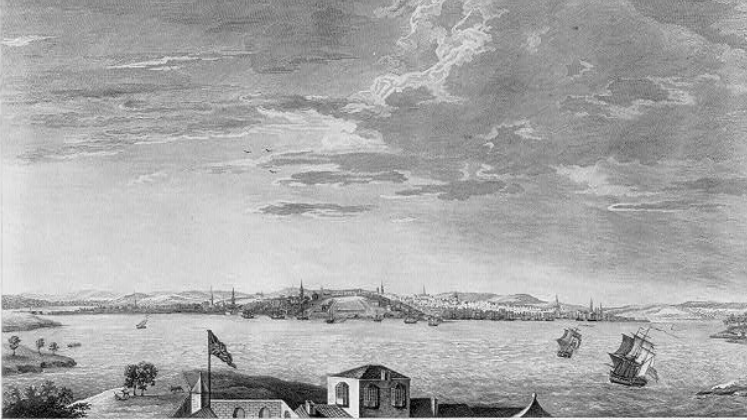 Enemy on the Euphrates: The Battle for Iraq, 1914-1921 documents the British Empire’s occupation of Iraq during the First World War and the subsequent uprising against its rule. The author, Ian Rutledge, offers ‘a story of imperial arrogance and plunder, and the inevitable reaction that it generates’, writes William Eichler.
Enemy on the Euphrates: The Battle for Iraq, 1914-1921 documents the British Empire’s occupation of Iraq during the First World War and the subsequent uprising against its rule. The author, Ian Rutledge, offers ‘a story of imperial arrogance and plunder, and the inevitable reaction that it generates’, writes William Eichler.
Enemy on the Euphrates: The Battle for Iraq, 1914-1921. Ian Rutledge. Saqi Books. 2014.
In 1905 in a quiet Istanbul coffee house 26-year-old Mark Sykes met with an employee of a German engineering company that was surveying northern Iraq for the planned Berlin to Baghdad Railway. The engineer passed a small notebook to the young British Embassy employee, who, in exchange, handed over some money. The notebook contained details about possible oil deposits near Mosul, and Sykes passed it on to his superiors who filed it away without giving it much thought. A decade later the Great Powers would be scrambling for access to the Middle East’s oil reserves and Britain would take over Iraq in what would turn out to be its first occupation of Mesopotamia.
Since the 2003 invasion of Iraq and the later eruption of the Arab Spring there have been a slew of books on the end of the Ottoman Empire and the birth of the modern Middle East. Ian Rutledge’s Enemy on the Euphrates is a welcome contribution to what otherwise might seem like an overcrowded field. Its main focus, as the subtitle suggests, is “The Battle for Iraq, 1914-1921”, but it deals in great detail with the byzantine negotiations and deals, the backstabbing and fighting, and the betrayals and murder that characterised the carve up of “Asiatic Turkey”. It also vividly captures how the ground was prepared for much of the violence in today’s Middle East.
Throughout the 19th century the Ottoman Empire — the so-called “sick man of Europe” — struggled to stay in one piece under the twin pressures of Great Power politics and separatist nationalism. The 600 year old Muslim autocracy suffered repeated military defeats and new ideas about national self-determination were becoming attractive to its various Christian minorities. Seeking to arrest its apparent decline it adopted technical innovations from its competitors, further centralised power in the hands of the Sublime Porte and promoted a new Ottoman identity that sought to unite Muslims and Christians. This had very little effect. And neither did later attempts at promoting pan-Islamism and pan-Turkism. The empire was finished and it was its entrance into WWI that sounded the final death knell.

The Allied powers did all they could to finish it off. They attempted to rally the Arabs against their Turkish overlords by promising Hussein bin Ali, the Sharif of Mecca, a rather ill-defined “independent Arab Kingdom”. This proved only marginally effective and, despite the myths that surround the adventures of T. E. Lawrence, aka Lawrence of Arabia (who comes across as a clown in Rutledge’s telling), most of the region’s population preferred to support the Sultan-Caliph in Istanbul. This was probably just as well because the European powers had no serious intention of allowing the creation of a genuinely independent Arab Kingdom. Sir Mark Sykes, who was now in the War Office and a protégé of arch-imperialist Lord Kitchener, and the French diplomat François Georges-Picot had secretly divided up the Middle East into “spheres of influence” for Britain and France in what would become the infamous Sykes-Picot Agreement.
Iraq fell within Britain’s “sphere of influence”. There had been much deliberation in London about Britain’s “economic and commercial interests” in the region and there was no question that Iraq, or at least a part of it, would have to stay under British control. London’s main concern was in defending the Anglo-Persian Oil Company’s (APOC) oil fields and pipelines in Abadan in southwest Iran. The government owned majority shares in this corporation but, more importantly, the British navy was changing over to oil-fired ships and so control over oil fields was going to be a major strategic factor in the future. In order to guarantee this control they took over Basra and then moved north to Baghdad and, as it became clear that there was more oil to be had further north, Mosul.
By the end of the war most of what is today modern Iraq was under British control and it wasn’t long before the locals resented this. The occupation authorities arrogantly dismissed their grievances — high taxation and forced labour, for example — as unimportant. But soon the natives became difficult to ignore. Small localised uprisings broke out here and there. These were put down to external agitators, such as Syrian nationalists, Kemalists or Bolsheviks, and it took a while for the authorities to see what was under their noses. But by 1920 it became impossible to deny what was going on: a full scale insurgency against the occupying force had begun. General Haldane, the rather clueless General Officer Commanding Mesopotamia from 1920-22, hurried off a panicked telegram to the War Office in the midst of the fighting. “Tribes who have risen appear to be affected by a wave of fanaticism”, he wrote. “Neither they nor their leaders have in any instance formulated any specific grievances and removal of all Government control appears to be their sole expressed object.” Apparently, an end to British rule wasn’t specific enough.
At over 400 pages long, Rutledge’s tome is no small undertaking. But it is a rewarding read. He writes with the literary skill of a novelist who has the analytical mind of a social scientist. Enemy on the Euphrates is full of multidimensional character studies and we are provided with insight into all the major players, from Churchill to Hussein bin Ali and Gertrude Bell to General Haldane. At no point, though, does he allow the drama of events to conceal the bigger picture. This is a story of imperial arrogance and plunder, and the inevitable reaction that it generates. There are many lessons here that, had they been taken on board earlier, could have prevented much of the folly of the last 15 years. History rarely repeats itself, but it can often seem far too familiar.
William Eichler has a BA in Philosophy and Politics and an MA in Middle Eastern Studies. He is a freelance journalist and part-time English teacher who lives and works in the UK and Turkey. He blogs at Notes on the Interregnum: Essays and Reviews and you can follow him on Twitter at @EichlerEssays. Read more reviews from William here.








2 Comments